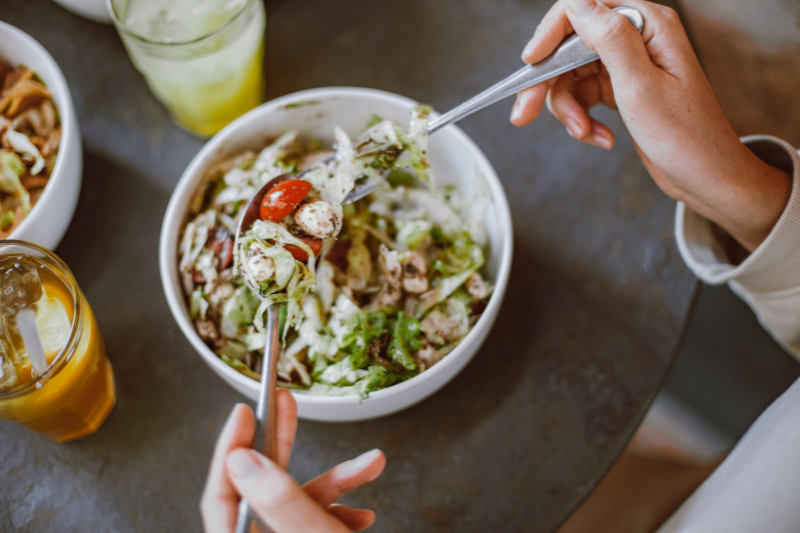Inflammatory Bowel Disease (IBD), which includes Crohn’s disease and Ulcerative Colitis, is a chronic condition where the immune system overreacts and causes inflammation in the digestive tract. Symptoms like abdominal pain, diarrhea, fatigue, and weight loss can flare up unpredictably.
While there’s no single “IBD diet,” the right food choices can calm inflammation, ease symptoms, and support gut healing. Here are the best diet tips to reduce inflammation in IBD.
1. Choose Anti-Inflammatory Foods
Certain foods naturally lower inflammation and support gut repair:
- Fatty fish (salmon, sardines, mackerel) → rich in omega-3s
- Turmeric & ginger → powerful anti-inflammatory spices
- Cooked vegetables (carrots, zucchini, pumpkin, spinach) → easier on digestion
- Berries & grapes → high in antioxidants
- Olive oil → healthy fat that reduces inflammation
Tip: Cook vegetables well (steamed, sautéed, or roasted) to make them gentler during flare-ups.
2. Eat Lean Protein
Protein is crucial for healing tissues damaged by inflammation. Opt for:
- Chicken
- Eggs
- Tofu or tempeh
- Fish
- Well-cooked lentils (if tolerated)
Tip: Avoid heavily fried or spicy protein preparations, which can irritate the gut.
3. Limit High-Fat and Fried Foods
Excess saturated fat and deep-fried foods can worsen inflammation and trigger diarrhea. Instead, focus on healthy fats like avocado, nuts, seeds, and olive oil (in moderation).
4. Watch Out for High-Fiber Foods During Flares
While fiber is healthy, during IBD flare-ups, raw veggies, whole grains, and beans can be too harsh and worsen diarrhea or pain.
Tip: Choose a low-residue diet during flares: white rice, oats, bananas, peeled apples, mashed potatoes. Gradually reintroduce fiber when symptoms calm down.
5. Avoid Common Trigger Foods
Some foods tend to worsen inflammation and IBD symptoms:
- Spicy foods
- Caffeine (coffee, strong tea, energy drinks)
- Alcohol
- Dairy (if lactose intolerant)
- Processed and packaged foods
Keep a food journal to track your personal triggers.
6. Stay Hydrated
Diarrhea and inflammation can dehydrate the body quickly. Drink plenty of water, coconut water, or clear broths. Avoid carbonated drinks and sodas that increase bloating.
7. Eat Smaller, More Frequent Meals
Large meals overload the digestive system. Smaller meals spaced throughout the day are easier to digest and help reduce gut stress.
8. Consider Probiotics & Prebiotics
- Probiotics (yogurt, kefir, sauerkraut) can help restore gut bacteria balance.
- Prebiotic foods (bananas, oats, asparagus) feed good bacteria—but should be added slowly and only if tolerated.
Final Thoughts
Food won’t cure IBD, but it can play a huge role in reducing inflammation, easing flare-ups, and improving quality of life. By focusing on anti-inflammatory foods, lean protein, hydration, and avoiding triggers, you can better manage IBD naturally.
Always work with your doctor or a nutritionist to personalize your diet since every gut responds differently.


